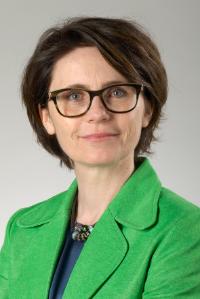Previous Seminars
ICaMB seminar - Prof Susanne Lens

- Venue: Baddiley Clark Seminar Room
- Start: Wed, 24 May 2017 13:00:00 BST
- End: Wed, 24 May 2017 14:00:00 BST
Susanne Lens obtained a degree in Biomedical Sciences from the University of Leiden in 1993. She then started her Ph.D. training in Immunology in the lab of Prof. dr. R.A.W van Lier, at that time located in the Central Laboratory for Blood Transfusion Service (CLB), Amsterdam.
Intrigued by the tricks that cancer cells evolve to circumvent programmed cell death, she wanted to work on the signaling pathways leading to apoptosis and on the mechanisms by which apoptosis inhibitors interfere in these pathways. In 1999, she therefore joined the lab of Prof. dr. J.T. Tschopp at the University of Lausanne, Switzerland, on a Fellowship obtained from the Dutch Cancer Society.
In his lab she worked on the in vivo function of the apoptosis inhibitor c-FLIP. During this post-doc her interest in apoptosis inhibitors extended in particular to survivin, a member of the Inhibitor of Apoptosis Proteins (IAPs), which was found to have a function not only in apoptosis inhibition but also in cell cycle regulation.
Driven by her interest in survivin she decided to change research fields in 2001 to gain expertise in cell biology and cell cycle checkpoints in the lab of Prof. dr. R.H. Medema at the Netherlands Cancer Institute in Amsterdam. In 2005 she was awarded with a Vidi Innovational Research Incentives Scheme and in 2011 with a Vici Innovational Research Incentives Scheme from the Netherlands Organisation for Scientific Research for her research on chromosome stability and the chromosomal passenger complex.
She is currently Professor of Genomic Instability in the Department of Molecular Cancer Research, University Medical Center Utrecht, Science coordinator for the Selective Utrecht Medical Master (SUMMA), and Director of the PhD program Clinical and Translational Oncology (CTO) of the Graduate School of Life Sciences, Utrecht University.